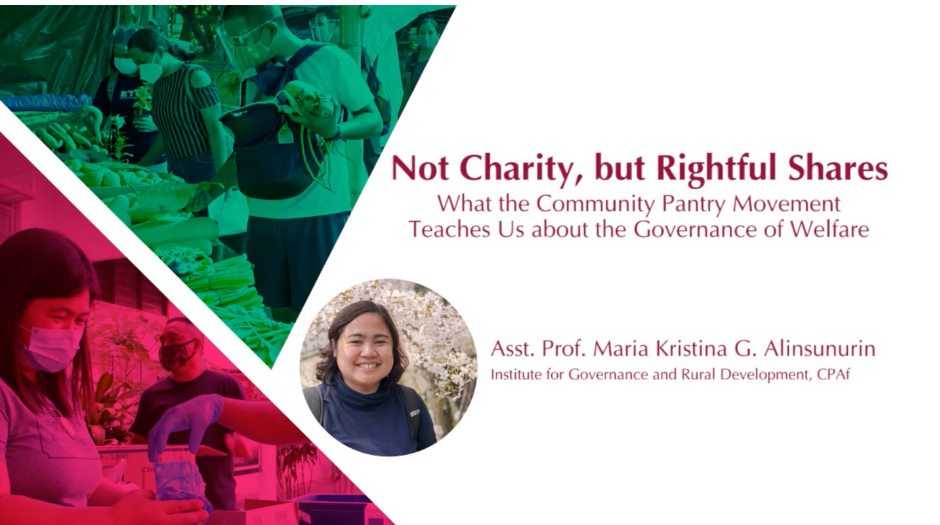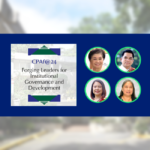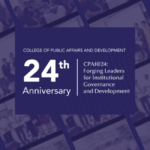UPLB faculty members discussed their take on community pantry based on the lenses of governance, human rights, and social and economic empowerment for the final episode of the Usapang Bayanihan webinar series that was streamed via YouTube and Facebook on May 29.
Maria Kristina G. Alinsunurin, a faculty member at the Institute for Governance and Rural Development of the College of Public Affairs and Development (IGRD-CPAf), tackled how food is not only a charitable good but a fundamental human right, which she called the rights-not-charity principle.
She also discussed how community pantries can be seen as a call for good governance and action, highlighting the obligation of the state to provide for and protect its people, especially during this time of crisis. It also breaks the social stigma of discrimination and promotes a sense of community.
“Give what you can. Take what you need. It is everyone’s rightful share,” Alinsunurin said.
The reactor, Nelson Jose Vincent B. Querijero, also from IGRD-CPAf, tackled the emergence of community pantries and examined it through the distributive justice perspective. He added that community pantries allowed the point of contact between the privileged and underprivileged.
Jerry R. Yapo, a faculty member at the Department of Humanities of the College of Arts and Sciences (DHum-CAS), talked about UPLB’s experience of the community pantry.
He used the steps in management to narrate the phases of establishing a two-week community pantry in the university, which was branded as UPLB “PLANTry and FARMacy.”
He then gave credits to the closely knit constituents of the university, as well as friends, alumni, and groups that made UPLB’s community pantry possible.
Author profile
Kyle Ramiel Dalangin
Related entries
-
Kyle Ramiel Dalangin#molongui-disabled-link




